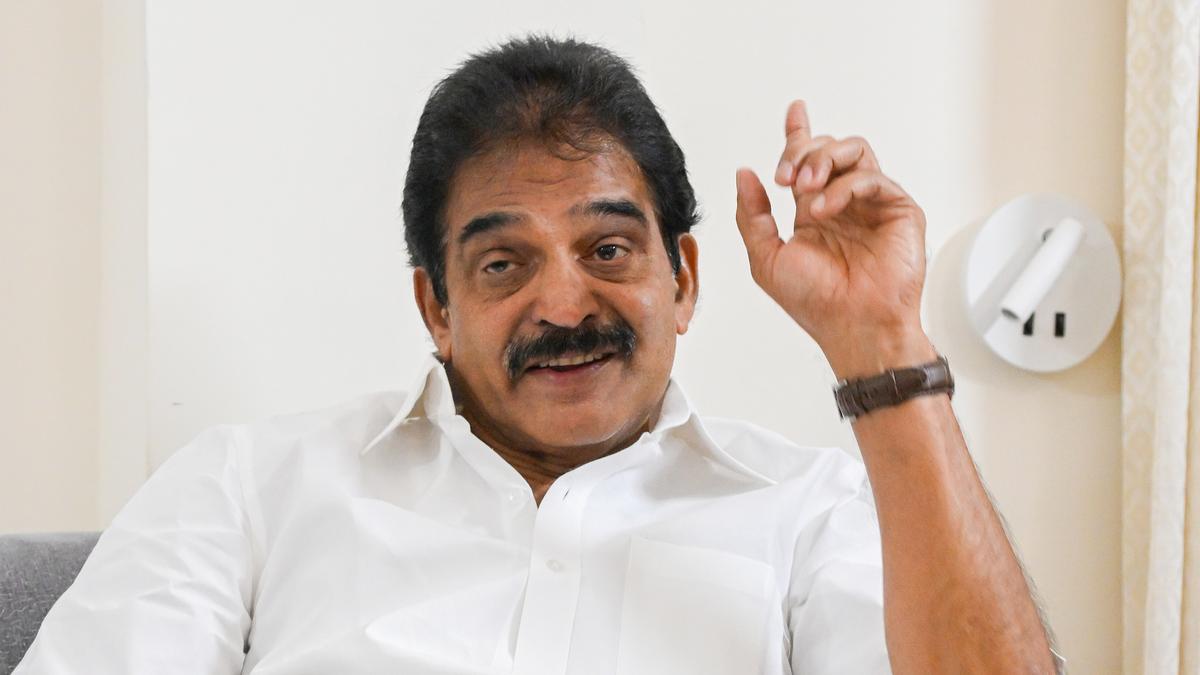ARTICLE AD BOX
Last Updated:August 28, 2025, 23:41 IST
The SC said the earlier six-week limit was deliberately replaced with the phrase 'as soon as possible' in Article 200 and asked the Centre if it can be ignored

The SC made the observation even as the Centre submitted that state governments cannot invoke writ jurisdiction in moving the court against the actions of the President and governor in dealing with these bills. (Image: PTI/File)
The Supreme Court on Thursday questioned the delay by governors in giving their assent to bills passed by state assemblies, saying the term “as soon as possible" in Article 200 of the Constitution will serve no practical purpose if they withheld for “eternity".
A five-judge Constitution bench made the observation even as the Centre submitted that state governments cannot invoke writ jurisdiction in moving the SC against the actions of the President and the governor in dealing with these bills.
The bench said the earlier six-week limit was deliberately replaced with the phrase ‘as soon as possible’ in Article 200. It asked the central government if it can be ignored in deciding the fate of bills.
“The question is when the governor sits over a bill passed by the legislature and keeps sitting over it. The words used were ‘as soon as possible’…earlier it was six weeks and later made as soon as possible and one of the members in the drafting committee stated ‘as soon as possible’ would mean immediately…if this was the view of the constitution makers then can we ignore that," Chief Justice of India BR Gavai asked. “Otherwise, the word as soon as possible will be rendered otiose (serving no practical purpose) if you withhold (assent) for eternity."
The apex court is deliberating issues including the key one which is whether courts can direct Governors or the President to act within a specified time-frame on bills placed before them.
‘GOVERNOR…A SUPER CHIEF MINISTER’
Responding to submissions that governors can withhold assent to even money bills, senior advocate Abhishek Singhvi, appearing for Tamil Nadu, said the argument that governors can withhold assent even to money bills passed by the assembly will effectively make them a “super chief minister".
“It is in sync with the submission that the governor is not in a dominating position rather he is a super chief minister," Singhvi said.
WHAT DID THE CENTRE SAY?
Earlier in the day, Solicitor General Tushar Mehta, appearing for the Centre, told the bench that he has got the instructions to submit that the President is of the opinion that the SC render its views on the questions whether states could invoke Article 32 to move the court seeking a mandamus to the governor or the President for clearing a bill.
Mehta said he will seek instructions and inform the bench and pointed out that in a federal structure the dispute between the states and the Centre should be resolved politically or a suit under Article 131 of the Constitution can be filed.
The bench, also comprising justices Surya Kant, Vikram Nath, PS Narasimha, and AS Chandurkar, heard him on the presidential reference concerning the powers of governors and the President in dealing with bills passed by state legislatures, focusing sharply on whether the court can impose a timeline on constitutional authorities for assent to legislation.
The solicitor general referred to the April 8 Tamil Nadu verdict in which states were given liberty to approach the SC directly in case the timeline is not adhered to by the governor in clearing the bills passed by the Assembly.
The CJI said it will not make any comments with regard to the two-judge verdict of April 8 but observed that the Governor will not be justified in sitting over bills for six months.
WHAT IS ARTICLE 200?
Article 200 provides for the powers of the Governor regarding bills passed by the state legislature, allowing them to either assent to the bill, withhold assent, return the bill for reconsideration or reserve the bill for the consideration of the President.
A proviso of Article 200 states that the governor may, as soon as possible after the presentation to him of the bill for assent, return the bill, if it is not a Money Bill, to the house for reconsideration and shall not withhold the consent after the assembly reconsiders and sends it back to him.
(With PTI inputs)
The News Desk is a team of passionate editors and writers who break and analyse the most important events unfolding in India and abroad. From live updates to exclusive reports to in-depth explainers, the Desk d...Read More
The News Desk is a team of passionate editors and writers who break and analyse the most important events unfolding in India and abroad. From live updates to exclusive reports to in-depth explainers, the Desk d...
Read More
- Location :
- First Published:
August 28, 2025, 23:41 IST
News india 'If You Withhold Assent For Eternity…': SC Questions Governors' Delay In Clearing Bills
Disclaimer: Comments reflect users’ views, not News18’s. Please keep discussions respectful and constructive. Abusive, defamatory, or illegal comments will be removed. News18 may disable any comment at its discretion. By posting, you agree to our Terms of Use and Privacy Policy.
Read More



.png)
.png)
.png)
















 3 hours ago
3
3 hours ago
3








 English (US) ·
English (US) ·